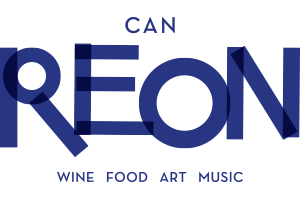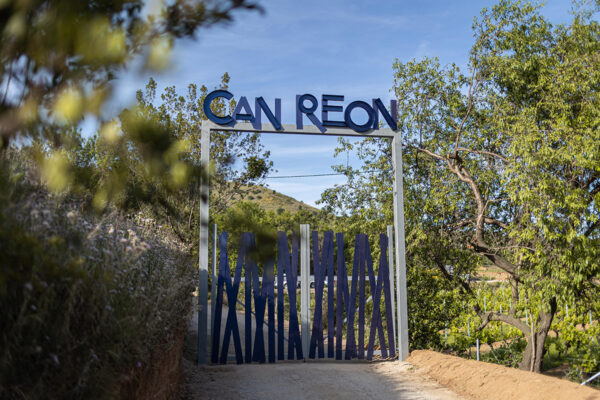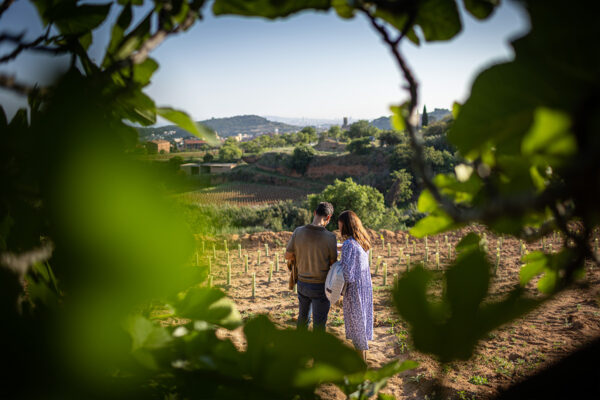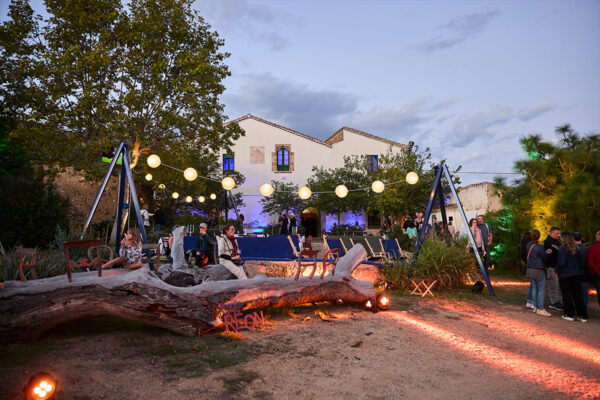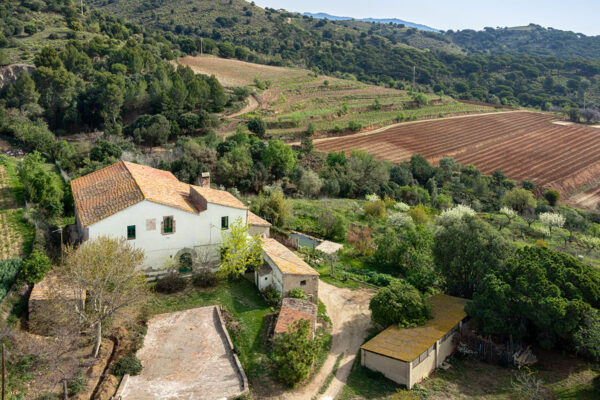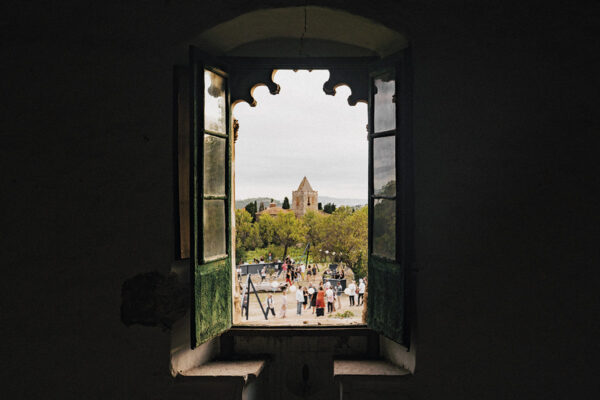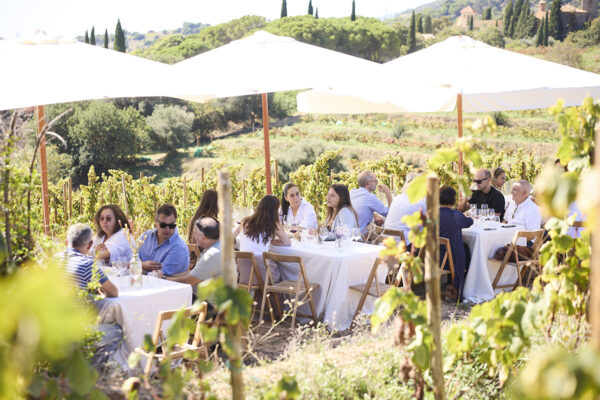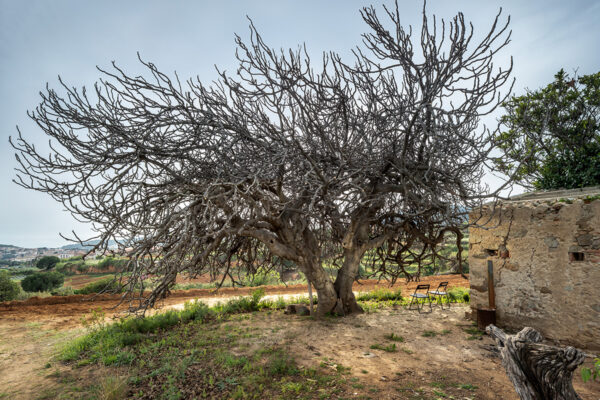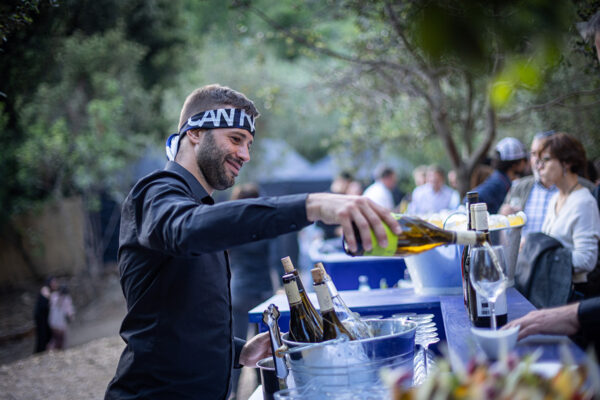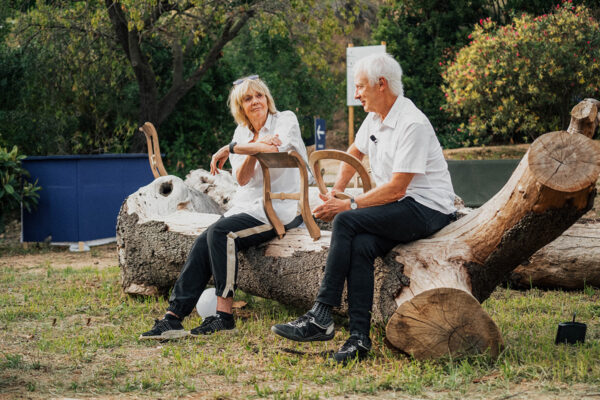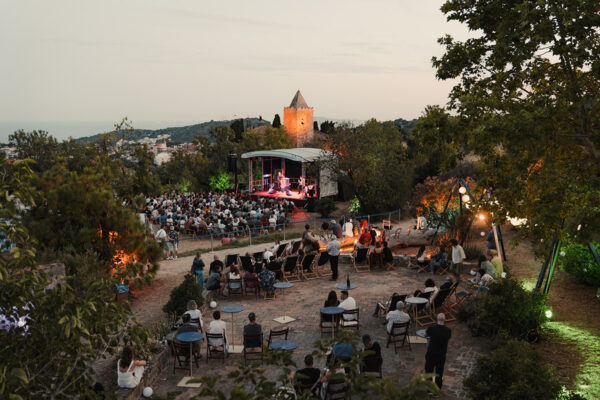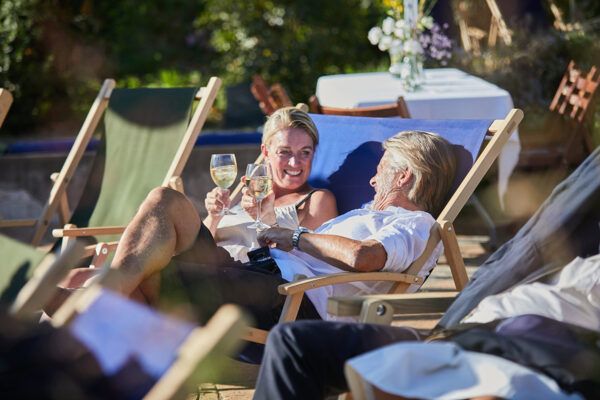This space invites visitors to immerse themselves in an atmosphere where respect for the past and a love for nature intersect with the bold innovation of contemporary art. The concept of CAN REON represents a harmonious dialogue between natural and artificial beauty.
A Seamless Fusion of History, Creativity, and Sensations
The landscape surrounding CAN REON consists of lush forests, hills, centuries-old trees, and winding paths that lead to ancient vineyards and historic structures. Features such as the Masía, the Pedrera, historic barns, stone walls, and traditional tools tell stories of a vibrant past. This environment preserves its natural beauty while embracing surrealist art and cutting-edge elements.
Currently, we are undertaking a visionary project to transform the historic masía into an exceptional destination that combines fine dining, comfortable accommodations, a state-of-the-art winery, and captivating artistic installations. By mid-2027, this ambitious rehabilitation project will breathe new life into the estate, blending its rustic charm with cutting-edge innovation.
The renewed CAN REON will serve as a sanctuary for food enthusiasts, offering an innovative culinary experience deeply rooted in the rich local tradition and its produce. This project is a bold declaration of commitment to sustainability, celebrating the wealth of the surrounding natural environment while minimizing its ecological footprint.
At the core of this transformation is a collaboration with the prestigious Danish architectural firm BIG – Bjarke Ingels Group, whose Barcelona-based team has taken on the challenge of designing a space that respects the historical essence of the masía while elevating it to a new contemporary dimension. Renowned for their groundbreaking designs that combine form, functionality, and sustainability, BIG is creating a masterpiece that honors the legacy of CAN REON and transforms it into a cultural landmark.
Art will play a central role in this revitalization. Cutting-edge artistic installations will be carefully integrated throughout the estate, fostering an inspiring dialogue between the old and the new. These interventions will not only enhance the aesthetic appeal of the space but also stimulate the senses and imagination, making every corner of CAN REON a true delight for visitors.
Who’s Behind it
CAN REON is an initiative created by Renny and Leon Ramakers, a Dutch couple with an impressive international career in design and music.
Their professional experience and shared passions inspired them to envision a place where art, design, music, wine, and gastronomy could converge. Thus, CAN REON was born—a contemporary wine estate that seamlessly blends tradition with modernity, embodying their creative vision and personal dedication.
The name CAN REON pays homage to local tradition: “CAN” in Catalan means “house of,” while “REON” is a fusion of their own names, symbolizing their involvement and commitment to restoring the estate, the masía, and the vineyards. This project not only preserves the site’s legacy but also reinterprets it to offer a unique and inspiring experience.
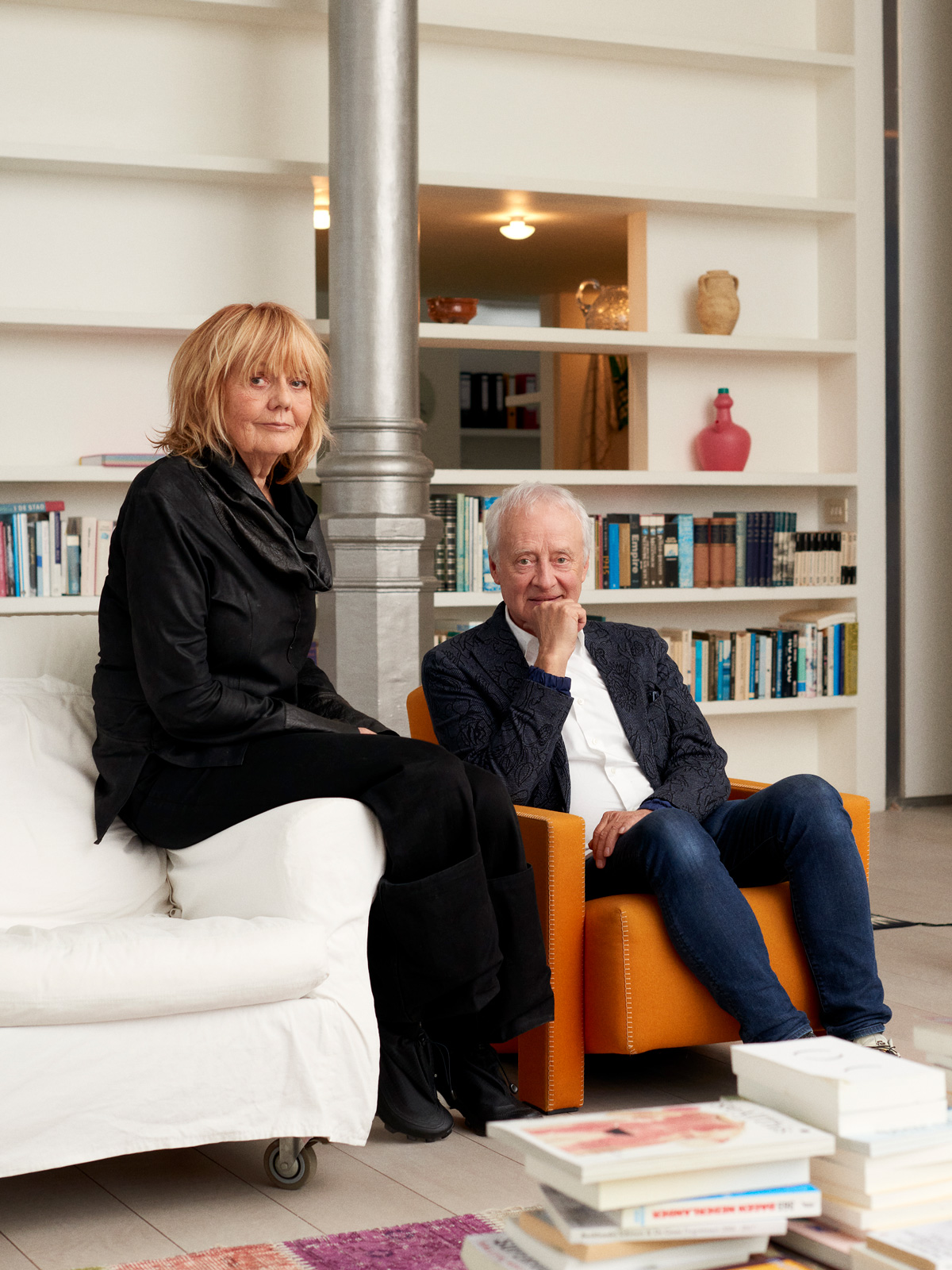
Renny Ramakers
A Pioneer in Design and Social Innovation
Co-founder of Droog, Renny Ramakers is a global reference in Dutch design. Over more than three decades, she has redefined furniture and industrial design as tools to reimagine the modern world. As an art historian, critic, and curator, she has explored new ways of fostering social connections by combining emerging technologies, social networks, and design craftsmanship.
When Droog debuted at the Milan Furniture Fair in 1993, its revolutionary approach—rooted in the assembly of found materials and ingenious forms—instantly transformed the design landscape. Since then, Ramakers has collaborated with creators and manufacturers to push the boundaries of decorative objects, developing projects that challenge complex realities while bringing joy and reflection to their audiences.
Her achievements have been recognized with numerous awards, including being named an Officer of the Order of Orange-Nassau in 2018, one of the highest honors in the Netherlands, equivalent to a knighthood.
Today, Renny Ramakers continues curating exhibitions that explore the boundaries of art and design. She divides her time between Amsterdam and Barcelona, cities that inspire her creative vision and commitment to cultural innovation.
Leon Ramakers
A Visionary in the Music Industry
Leon Ramakers is a distinguished entrepreneur and former director of Mojo Concerts, the leading Dutch company in concert and festival promotion and organization. With a career spanning over 50 years, Ramakers has been a pivotal figure in transforming the music industry in the Netherlands, leaving an indelible mark on its cultural panorama.
From managing concert venues and festivals to investing in startups and digital platforms, Ramakers has played a leading role in every aspect of the music industry and beyond. His ability to innovate and diversify has been key to the sector’s development, solidifying his legacy as a true pioneer.
In recognition of his contributions, in 2019, he was named an Officer of the Order of Orange-Nassau, one of the highest honors in the Netherlands, equivalent to a knighthood.
Today, Leon Ramakers lives and works between Amsterdam and Barcelona, continuing his involvement in cultural and business projects that reflect his passion for music and innovation.
A Place with much History
A Prime Location in Maresme
The CAN REON estate is located in Tiana, a charming town in the Maresme region (Barcelona), at the foot of the Conreria hills and within the protected area of the Serralada de Marina. This unique natural environment, combined with a privileged climate, makes Tiana an exceptional place.
Just 20 minutes from Barcelona, Tiana is the northeastern gateway to the Metropolitan Area, offering a perfect balance between urban proximity and the tranquility of nature.
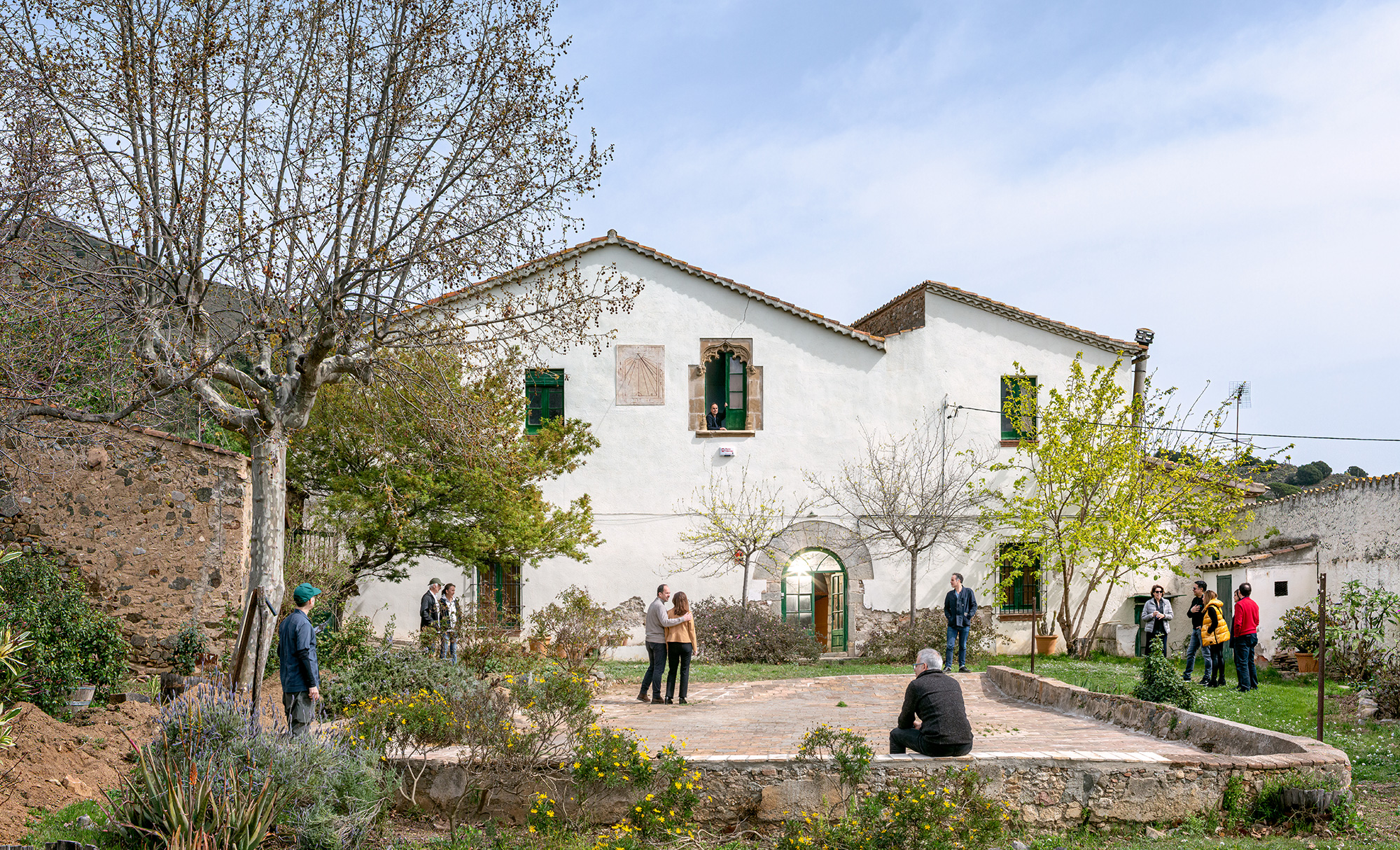
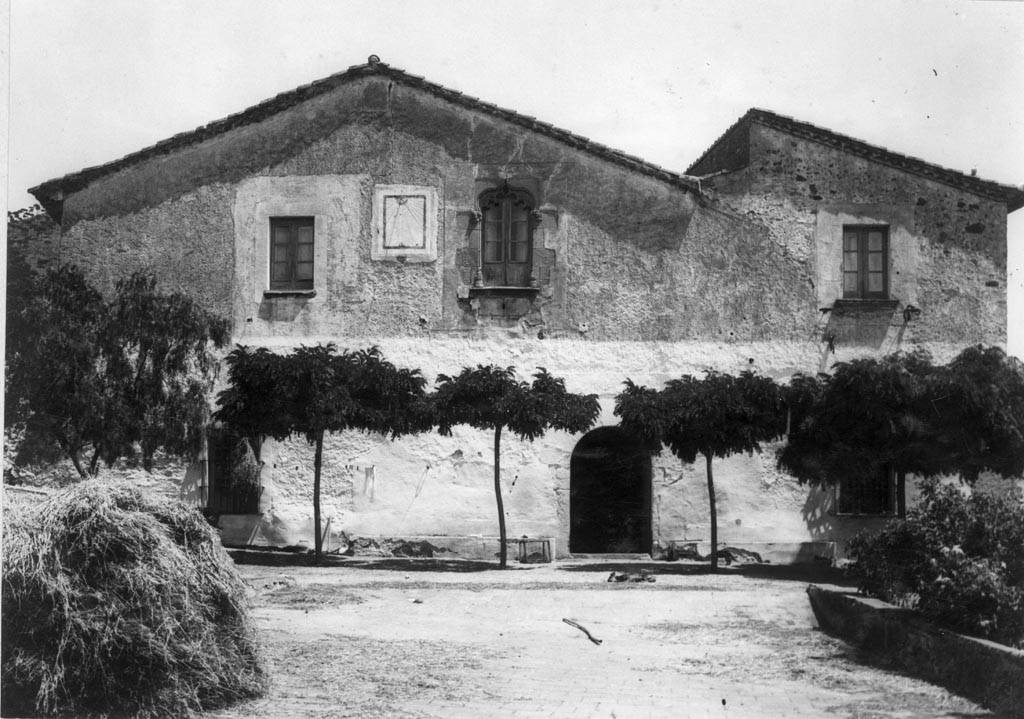
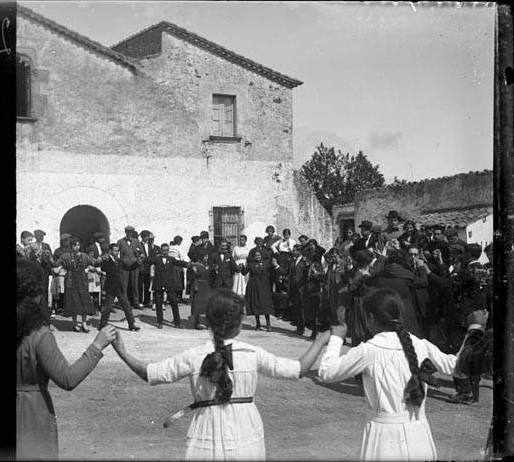
A Legacy Spanning Centuries
The historic Can Fàbregas de Dalt masía, now known as CAN REON, is listed in Tiana’s Architectural and Environmental Heritage Catalog. Its documented history dates back to 1245, making it a living testament to the region’s past.
For centuries, this masía was one of Tiana’s most significant agricultural estates. Initially, its main activities revolved around vine cultivation, winemaking, and maintaining vegetable gardens. In the 19th century, the estate’s natural resources were intensely exploited, with the opening of two mines, a stone quarry for construction, and a natural water spring that supplied the village of Tiana.
Over time, the masía witnessed a rich and varied history, changing hands on numerous occasions. However, at the beginning of the 21st century, it fell into disrepair, losing much of its original splendor.
In 2020, Leon and Renny Ramakers acquired Can Fàbregas, marking the start of a new chapter. Under the name CAN REON, the wine estate is being reborn as a space that honors its historical legacy while projecting itself into the future.
